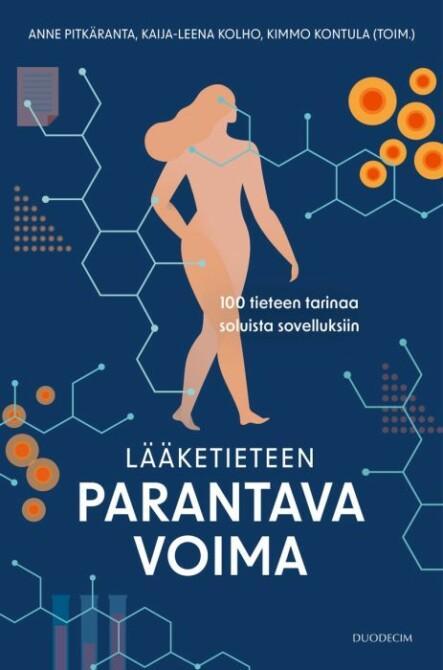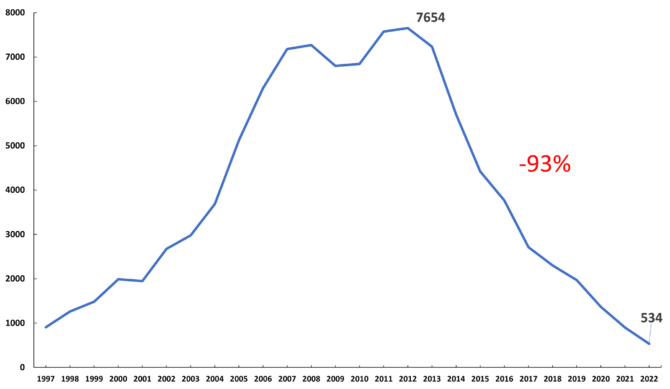
Lääketieteen parantava voima – 100 tieteen tarinaa soluista sovelluksiin
Anne Pitkäranta, Kaija-Leena Kolho, Kimmo Kontula (toim.)
1. painos 2024, 365 sivua, nidottu
The Finnish Medical Society Duodecim, the most prestigious medical association in Finland, recently unveiled their latest publication: “The Healing Power of Medicine – 100 Stories from Cells to Applications” (Lääketieteen parantava voima – 100 tieteen tarinaa soluista sovelluksiin), edited by Emerita Professor Anne Pitkäranta, Professor Kaija-Leena Kolho, and Emeritus Professor Kimmo Kontula.
This comprehensive book underscores the pivotal role of scientific research in revolutionizing healthcare management, leading to improved disease prevention, more efficient treatments, and the identification of ineffective medical practices. Highlighting a myriad of success stories from contemporary Finnish medical research, the book features a significant contribution from the FICEBO group, focusing on the evolution of degenerative joint arthroscopy in an article titled “Nivelrappeumamuutosten tähystyskirurgian nousu ja tuho” (The Rise and Fall of Degenerative Joint Arthroscopy).
Within the article, the FICEBO team consisting of key FIDELITY and FIMPACT investigators, delves into how advancements in orthopaedic treatments have often been embraced initially due to compelling biological reasoning, leading to widespread adoption despite limited evidence of efficacy. Through rigorous FIDELITY and FIMPACT trials, which scrutinized the effectiveness of two prevalent arthroscopic procedures—arthroscopic partial meniscectomy (APM) for degenerative meniscal tears and arthroscopic subacromial decompression (ASD) for subacromial pain—we the FICEBO team uncovered startling revelations: These placebo-controlled trials revealed no discernible benefits from the procedures compared to their placebo counterparts.
Our article elucidates the profound impact of high-quality research on reshaping clinical practices, exemplified by the FIMPACT trial, which has spurred a paradigm shift in arthroscopic surgery trends in Finland. Since 2011, the number of ASD surgeries has plummeted by over 90%, mirroring a similar decline in APM procedures. This transformation underscores the importance of medical reversals—abandoning ineffective procedures—providing a compelling case for the indispensable role of evidence-based medicine in steering healthcare towards greater efficacy and patient-centric outcomes.

Figure 1. Number of ASD procedures in Finland between 1997-2022.
We firmly assert that the abandonment of established practices like APM and ASD, which lack scientific support, is essential to mitigate the anticipated surge in medical care costs. Our findings underscore the imperative of evidence-based decision-making in healthcare policy to ensure resource allocation aligns with proven efficacy.
Our meticulous analysis and empirical evidence underscore the transformative impact of rigorous research on reshaping medical practices and improving patient outcomes. By prioritizing evidence-based interventions, we can optimize healthcare delivery and allocate resources more efficiently, ultimately enhancing the quality and accessibility of care.
“The Healing Power of Medicine – 100 Stories from Cells to Applications” is a compelling resource for anyone interested in the current state and future trajectory of medical research. It offers invaluable insights into the dynamic landscape of healthcare innovation, with a clear focus on advancing patient-centric solutions.
